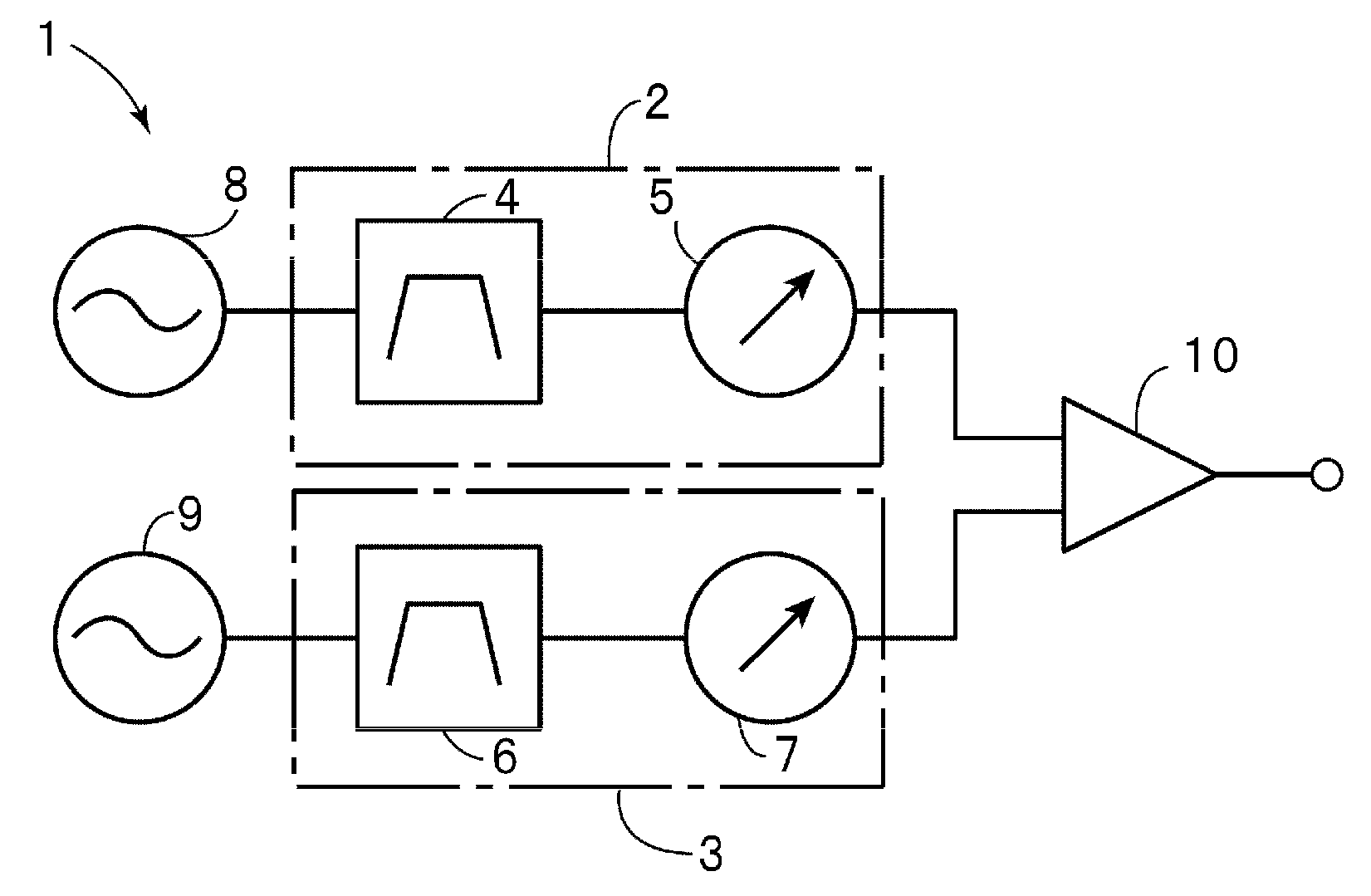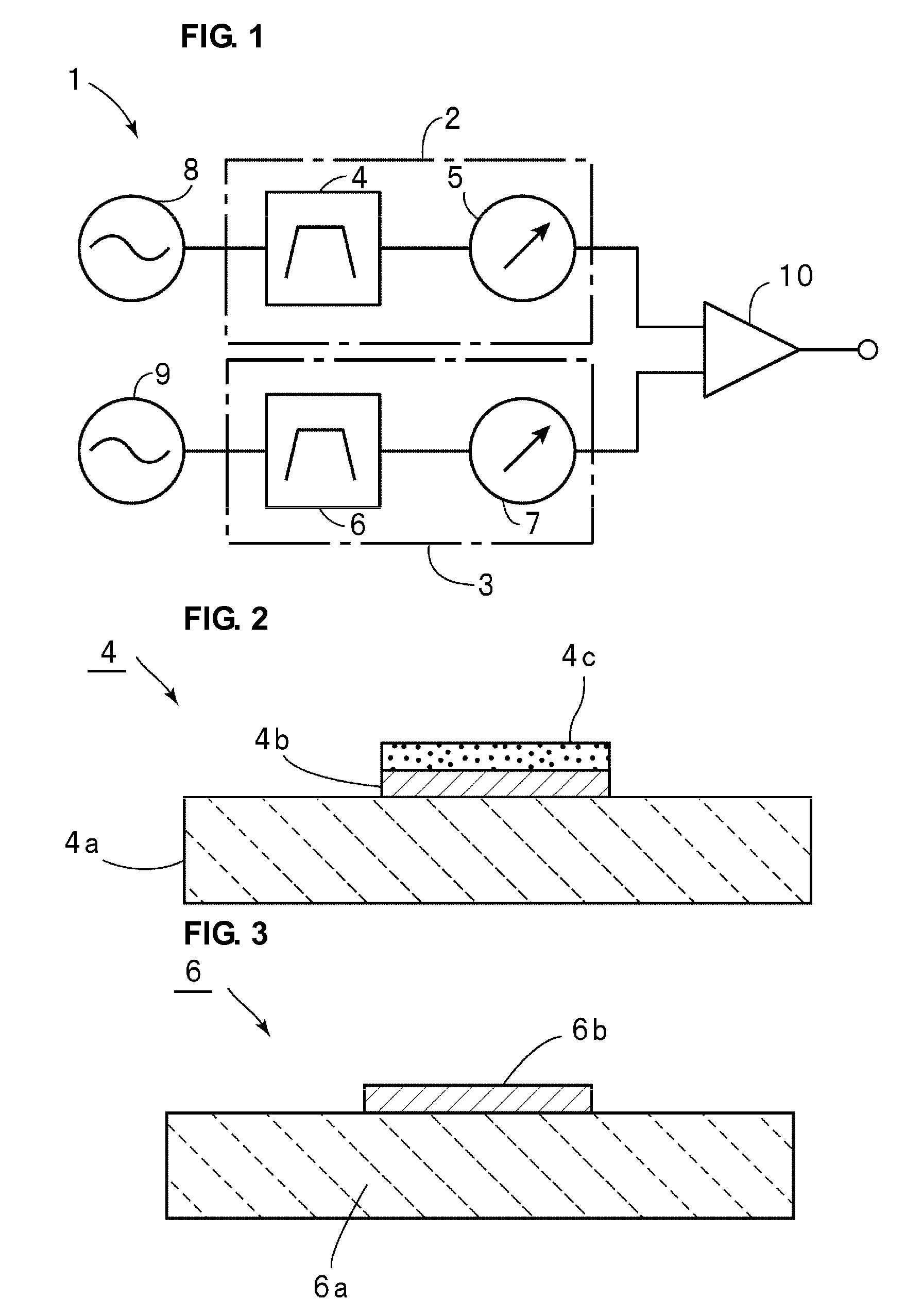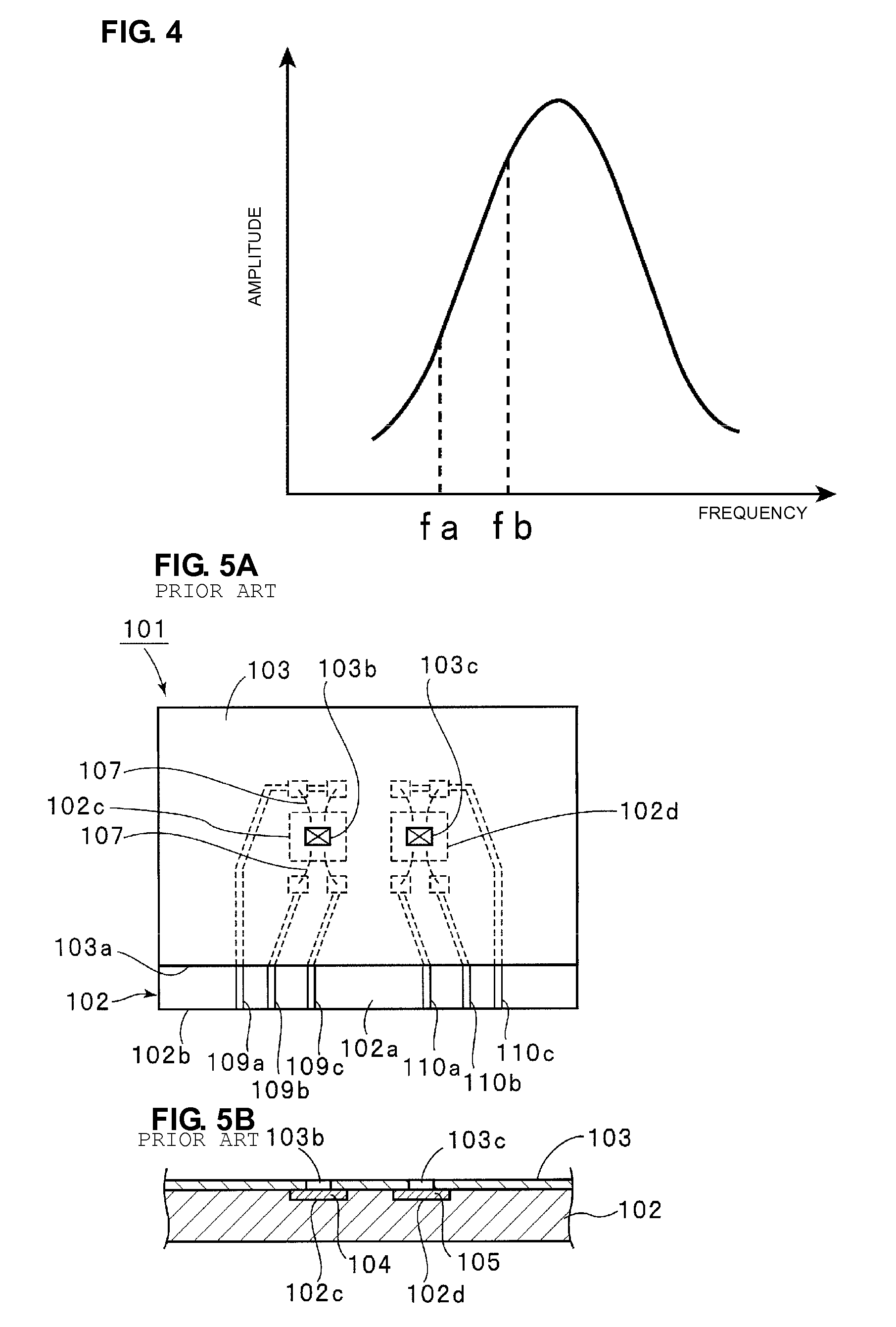Sensor for detecting substance in liquid
a technology for detecting substances and liquids, applied in the direction of instruments, suspensions and porous material analysis, chemical/physical/physico-chemical processes, etc., can solve the problem of difficult to reliably detect the detection-target substance in liquid with high precision, and achieve the effect of increasing sensitivity
- Summary
- Abstract
- Description
- Claims
- Application Information
AI Technical Summary
Benefits of technology
Problems solved by technology
Method used
Image
Examples
Embodiment Construction
[0025]Preferred embodiments of the present invention will be described below with reference to the drawings.
[0026]FIG. 1 is a block diagram that illustrates a circuit configuration of a sensor for detecting a substance in liquid according to a preferred embodiment of the present invention.
[0027]As illustrated in FIG. 1, the sensor 1 for detecting a substance in liquid includes a sensing circuit 2 and a reference circuit 3. The sensing circuit 2 includes a sensing SAW element 4 that is connected to a first output-level detecting circuit 5. The reference circuit 3 includes a reference SAW element 6 that is connected to a second output-level detecting circuit 7.
[0028]Each of the sensing SAW element 4 and the reference SAW element 6 may preferably be defined by a SAW element in which an IDT is provided on a piezoelectric substrate, for example. As schematically illustrated in FIG. 2, in the sensing SAW element 4, an IDT 4b is provided on the upper surface of a piezoelectric substrate 4a...
PUM
 Login to View More
Login to View More Abstract
Description
Claims
Application Information
 Login to View More
Login to View More - R&D
- Intellectual Property
- Life Sciences
- Materials
- Tech Scout
- Unparalleled Data Quality
- Higher Quality Content
- 60% Fewer Hallucinations
Browse by: Latest US Patents, China's latest patents, Technical Efficacy Thesaurus, Application Domain, Technology Topic, Popular Technical Reports.
© 2025 PatSnap. All rights reserved.Legal|Privacy policy|Modern Slavery Act Transparency Statement|Sitemap|About US| Contact US: help@patsnap.com



